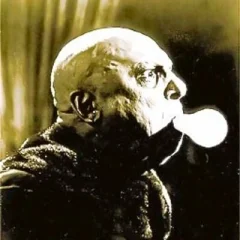Children are not responsible for those who come after them. They are the ones who come after. What should they think about, if not about themselves?
Of course, it’s not like that for everyone and it never was everywhere. It doesn’t matter, because in the end it happens to everyone, more or less, without a true awareness, without us being aware of it or any real change occurring, and, except for those who actually spend every day of their lives taking care of themselves, the moment it becomes necessary to take care of someone else – for example, children, even if they’re someone else’s children – suddenly it seems like the most automatic thing in the world that taking care of those who come after us is the meaning of having taken care of ourselves.
For parents, it’s easy, practically automatic: the survival, well-being, and happiness of their children become a priority, and especially when they’re not guaranteed, they become the main goal. Everything else takes a back seat: ambitions, careers, entertainment, culture, health, and all the commitments or interests that seemed to constitute the backbone of our existence become dispensable. Life itself is dispensable for those who have to think about their children.
The right of precedence is that of children over parents, who come before grandparents, who come before great-grandparents, and this dynamic, if we ask those involved, is crystal clear to everyone. Okay, even in this case, there are probably places in the world and reasons that justify why this mechanism isn’t so automatic.
Taking care of others, therefore, is not a vocation. Taking care of the destiny of humanity, proceeding in small steps – like participating in the creation and formation of the next inhabitants of the planet – or making great strides – like those who dedicate their lives to others with selflessness and sacrifice – is the goal.
Mother Teresa said it too, but I’ve always been too agnostic to connect this fact to feelings of divine love.
In reality, almost no one gives their life for others to gain paradise, but because we’re designed that way.
With all due respect to those who benefit from having pleasantly entertained themselves and grow old satisfied with themselves, or those who claim to be immortal or preserve the ambition to become so, eternity seems more within reach in the simplicity of passing on a baton – which doesn’t require heroism or even awareness – when we give up on ourselves as individuals to be cared for, pampered, and entertained.
Seneca wrote that we have nothing but time; he said it to emphasize the importance of not wasting it. But that we have time seems increasingly unrealistic to me.
Instead, we have enough life to get bored, and even if it rarely suffices to do everything we want, often it’s enough to do what we must, which isn’t a lot, actually. That’s why it’s so hard to get enough of our own happiness, while it’s so easy to take pleasure in being the reason for someone else’s.
If we dedicate our lives to others, then there’s no death, no apocalypse. Then we can do everything, and then we have everything.
Here’s a reason to smile.
